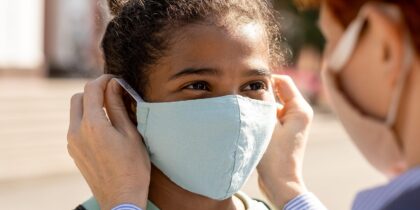Supporting healing and recovery
Jo Wilton
The response to Covid-19 has brought abrupt changes to everyday life. Many people will have felt isolated and disempowered at some point during the lockdown, and all will have experienced a loss – of their freedom, of their job, of their health, of a loved one. While many will come through it without lasting negative effects on their mental health, there is evidence that quarantine conditions can have several long-term psychological effects, including post-traumatic stress symptoms, in some people.
But not everyone is equally at risk of harm from the same traumatic event. The effects of trauma can be cumulative and magnified by injustice and inequality. This means that those of us who have already suffered distressing experiences, such as abuse, neglect, discrimination and oppression, are at higher risk of psychological harm and trauma from the adversity the current crisis is bringing to our lives.
When the acute phase of the physical health crisis has passed, addressing these social and psychological consequences of coronavirus must be made a priority. Careful thought needs to be given to how we can repair the social fabric and support those who have experienced the most distress. A trauma-informed approach to both collective and individual recovery will be needed.
Instead of abrupt changes, a trauma-informed approach will seek to provide long-term, reliable support; instead of isolation and disempowerment, it will seek to bring people together, rebuilding relationships, and giving all members of the community a voice in planning for recovery; and, where there has been loss, it will support people to grieve and come to terms with a changed future.
This briefing explores the ideas of collective trauma and healing, and what the process of recovery may look like.




